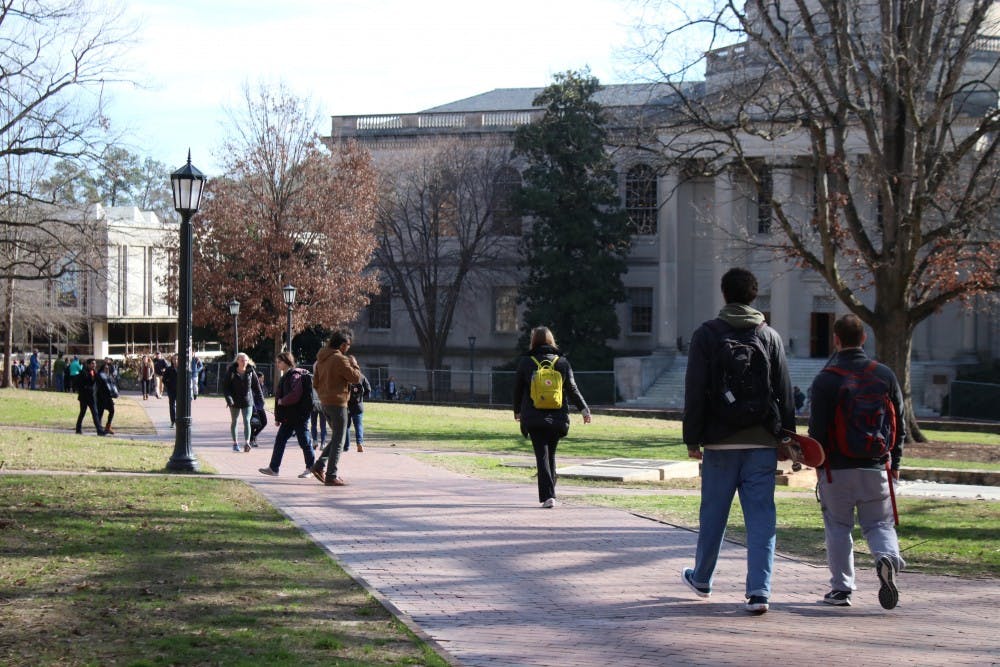Since the Dec. 22 start of the partial government shutdown, several federal parks, monuments and museums have closed. Thousands of federal workers could miss their next paycheck. On Jan. 8, the Dow Jones had dropped nearly 3,000 points since October.
But at UNC, not much has changed.
In September, Congress passed appropriations bills for the 2019 fiscal year, with funding for various agencies and programs within the Department of Education, including Higher Education, Student Financial Assistance and Student Aid Administration.
“UNC-Chapel Hill has been planning for a partial shutdown scenario, and our campus is well prepared,” Executive Vice Chancellor and Provost Bob Blouin said in a December email to the University community. “At this point, every indication is that a short-term partial shutdown would have a minimal impact on the U.S. higher education community.”
The UNC system receives federal funding from over 11,000 sources, according to a letter sent from Clinton P. Carter, senior vice president for Finance and Administration and the UNC-system Chief Financial Officer, to State Budget Officer Charlie Perusse. The government shutdown would likely not impact major funding sources, Carter wrote in the letter.
In September 2018, Secretary of Education Betsy DeVos released the U.S. Department of Education Contingency Plan for Lapse in Fiscal Year 2019 Appropriation. Under the contingency plan, programs funded with advance appropriations from a prior year can continue to make obligations and payments during government shutdowns.
“Students receiving federal financial aid will not experience any changes to their awards,” Blouin said in his email.
Federal workers will feel the brunt of the shutdown’s impact, with NPR reporting that about 800,000 workers will go without pay during the shutdown, including Department of Education employees. Under the DOE’s contingency plan, no more than 7 percent of the total staff can continue to work during a government shutdown that exceeds two weeks. However, employees can be phased in on a rotating basis to allow the DOE to carry on the program.
Problems could arise during a prolonged shutdown. The longest government shutdown ever lasted for 21 days from December 1995 to January 1996, as Democratic President Bill Clinton battled a Republican Congress over a federal spending issue.



